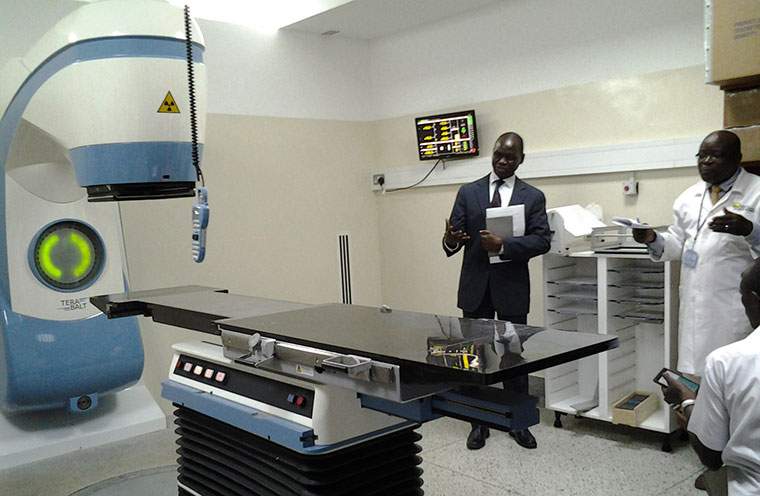A cancer patient will tomorrow become the first Kenyan to be treated with a new radiation machine that cuts treatment time from about 40 minutes to two minutes.
The machine, Varian Halcyon radiotherapy system, has been installed at the Nairobi West Hospital.
It was first developed in 2017. Kenya becomes the third African country after South Africa and Morocco and the sixth in the world to own the machine.
Clinical and radiation oncologist Solomon Mutua said it will ensure much better outcomes for cancer patients than the old treatment.
Besides the shortened treatment period, the machine targets the precise location of the tumour, minimising the risk of other organs being affected.
“This means we are able to give the required dosage of radiation. Because the treatment is targeted, we can direct high doses of radiation. There is no risk to surrounding structures. This means the side effects to the patients are also dramatically reduced,” Dr Mutua said.
Nairobi West Hospital is the first institution to buy the machine in East and Central Africa.
The platform was designed to make it easy for use by technicians
It involves just nine steps, instead of the 30 or more that are currently involved on standard radiation therapy platforms.
The machine will be launched officially on Monday.
“It is well-suited to handle the majority of cancer patients, offering advanced treatments for prostate, breast, head and neck, and many other forms of cancer,” Dr Prakash Saini said. He is the clinical coordinator of the oncology department.
In December, Tina Saini, the head of operations at the hospital, said they would offer services at the same rates as other facilities with no hidden costs.
Nairobi West’s announcement comes after The Aga Khan University Hospital invested more than Sh600 million to buy the first PET-CT scan machine in Kenya for the diagnosis of cancer, heart ailments and other diseases.
“Cancer, heart disease and other noncommunicable diseases now account for nearly three in 10 deaths in Kenya, according to the World Health Organisation.
The PET-CT scanner is a life-saving tool in the fight against these deadly diseases,” Aga Khan University Hospital CEO Shawn Bolouki said.
The university’s president Firoz Rasul said this was part of their commitment to expanding access to high-quality healthcare by introducing new technologies, educating skilled health professionals and conducting innovative research.
Source: www.the-star.co.ke



